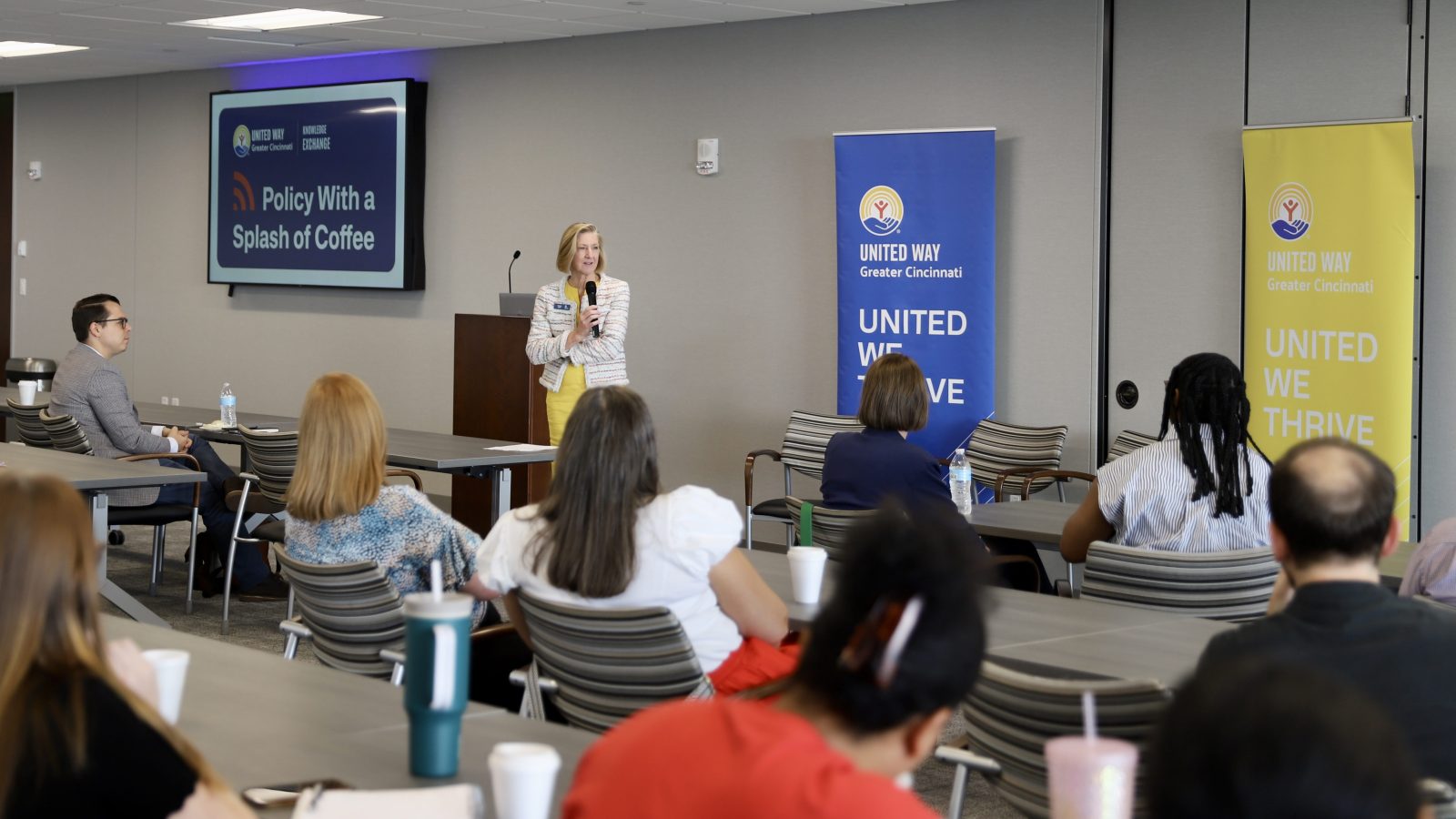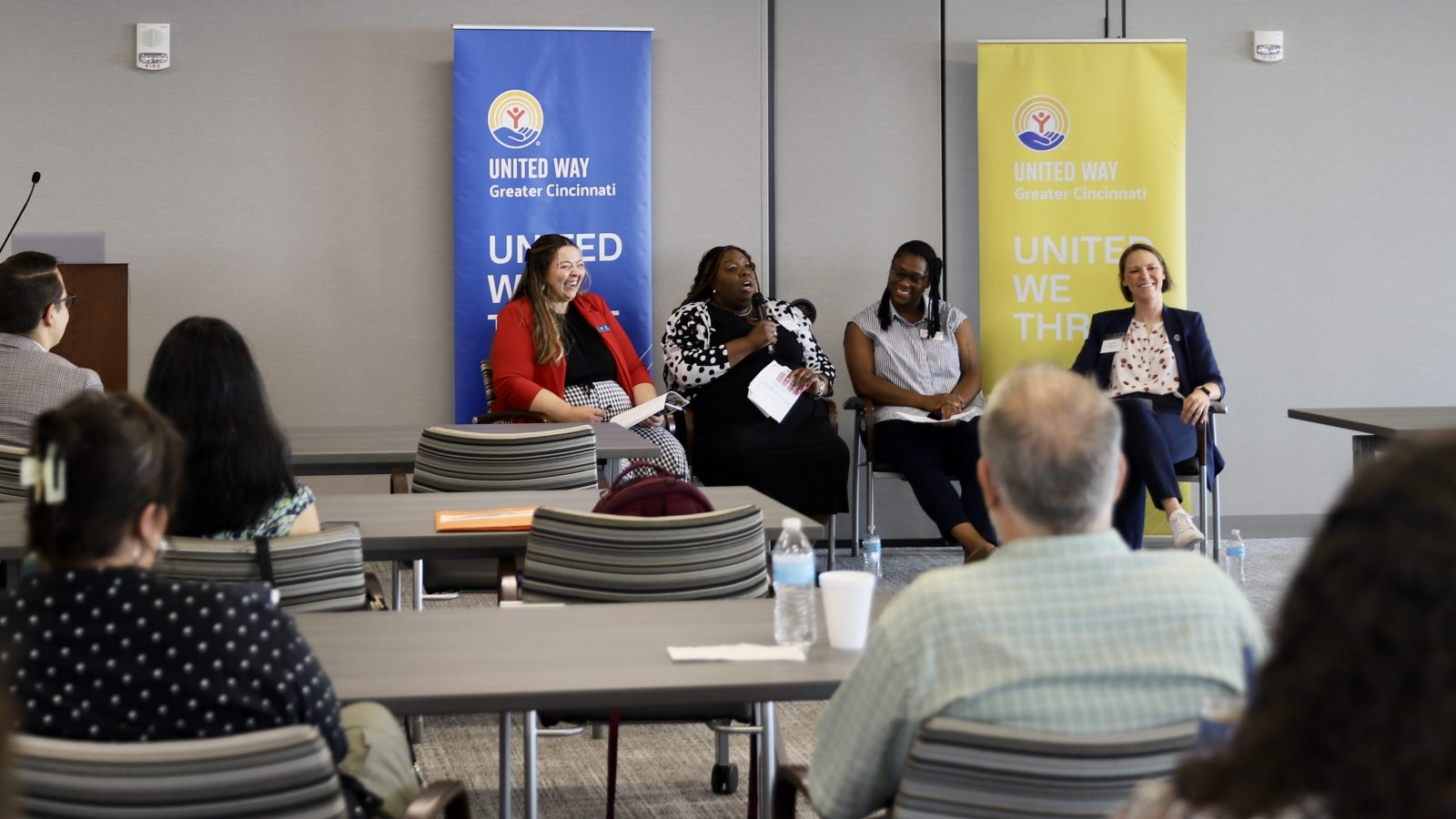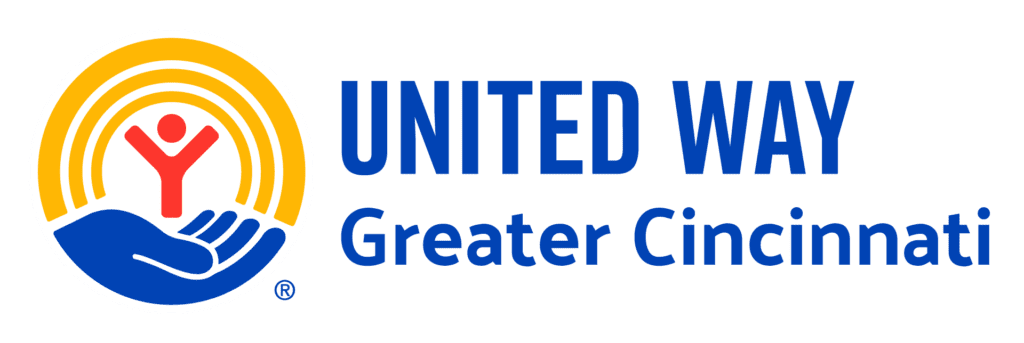CINCINNATI (July 2025) — United Way of Greater Cincinnati’s (UWGC) Policy With a Splash of Coffee event on July 22 explored how the Supplemental Nutrition Assistance Program (SNAP), Emergency Food and Shelter Program (EFSP) and similar programs address hunger in our communities.
Panelists included Anna Albi, Cincinnati Council Member; Hailey Barr-King, UWGC; Hope Lane-Gavin, Ohio Association of Foodbanks; and Kam McKenzie, Freestore Foodbank.
At UWGC, we believe addressing hunger can improve children’s academic success, expand the workforce and grow the economy. SNAP and EFSP are vital tools in this effort.

In her opening remarks, UWGC President and CEO Moira Weir said more than half of children nationwide live in households that can’t afford basics such as housing, child care, food, transportation and health care. With rising costs and cuts to federal programs, it is important that our communities know how to access resources and support.
Moira also shared data from United Way 211, noting that over the last six months, the helpline has received nearly 1,800 calls regarding food-related requests. Food insecurity deeply impacts the whole family. When kids and families aren’t nourishing their bodies, school and work become increasingly difficult.

A recent Ohio Association of Foodbanks survey of food pantry visitors across Ohio found that more than 65% of visitors had to choose between buying food or paying utilities at some point in the past year. Further, over 72% of respondents said they had to choose between food and transportation.
While our region has a robust and vibrant community of organizations addressing hunger, private philanthropy cannot fill the gap left by decreased public funding. With shifts in funding at state and federal levels, Council Member Albi discussed how the city of Cincinnati is stepping up.
“We are getting ready to launch our new grocery assistance pilot program,” she said. “This grocery assistance program will start in one neighborhood where over 50% of residents are utilizing SNAP benefits and over 60% are facing food insecurity.”
The pilot will focus on a neighborhood that is a food desert; that is, to reach a grocery store by public transit often takes an hour or more. The pilot will deliver groceries to residents’ doors, accept SNAP benefits and provide a $100 monthly credit for essential household items not covered by SNAP, such as paper towels and shampoo.
McKenzie spoke about the importance of addressing hunger among the older population, many of whom live on a fixed income. It is imperative we find creative ways to connect with them and ensure they are cared for.
To build a thriving community, it is vital we improve food security for children and families. SNAP and EFSP are two of the best tools for combating hunger. Please take a moment to let your elected officials know you support funding for these programs.

